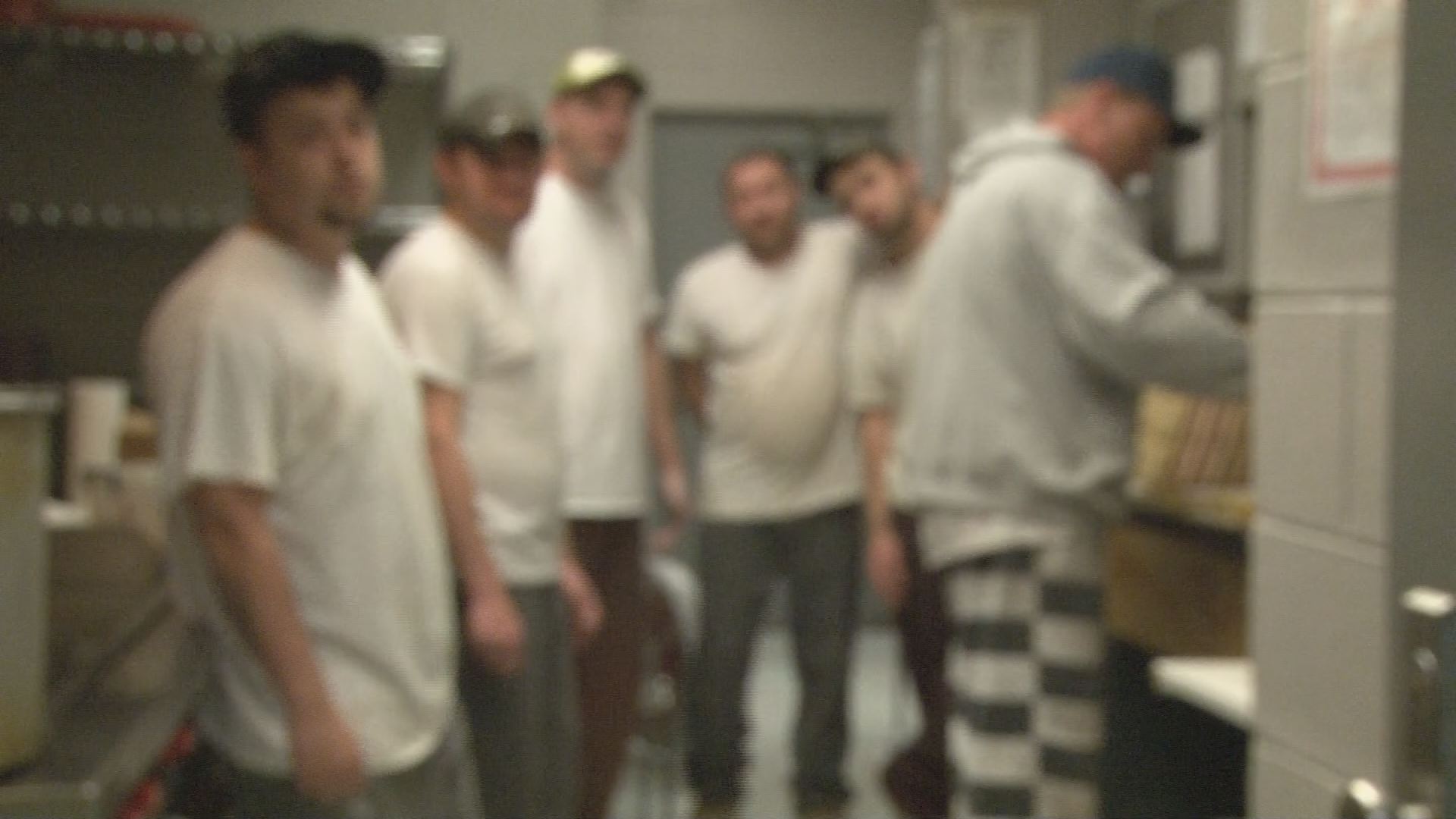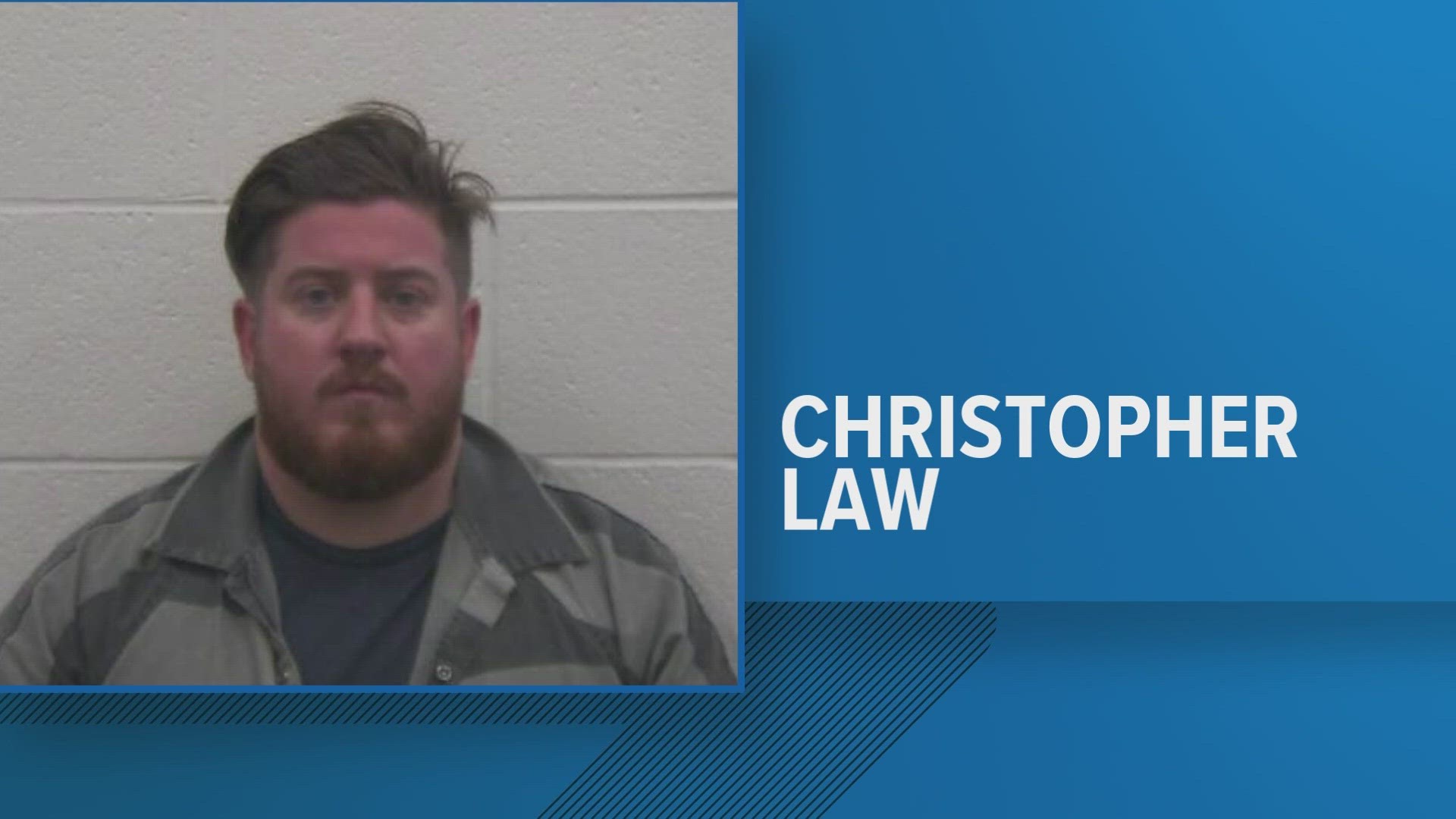East Tennessee jails have grabbed plenty of headlines in the region lately.
From the recent inmate escape in Grainger County to the push for a safety center in Knox County, their impact on East Tennessee communities have taken center stage. But, one of the biggest issues remains somewhat hidden to the public eye: jail overcrowding.
Once a month, the state keeps numbers on how many inmates are in the counties' jails. Its most recent data, on September 30, showed almost half of the counties' jails in Tennessee were overcrowded.
Seventeen of those jails were right here in East Tennessee.
That comes as more felons enter the state's prison system. Over the last 10 years, more than 6,000 new inmates have been incarcerated in Tennessee. Cocke County Sheriff Armando Fontes is on the state sheriffs association's jail committee. He's also on the Tennessee Corrections Institute's Board of Control.
Fontes said, right now, one thing is obvious.
"The largest obstacle we have is basically overcrowding in jails all over Tennessee," he said.
More Information: Monthly Jail Report - September
The Cocke County jail is currently under capacity, but the population there fluctuates constantly. Across the state, counties deal with the problem of overcrowding differently.
In some communities, inmates occasionally have to sleep on the floors. In Cocke County, they use "bed boats" which lift inmates off the floors.
Fontes says overseeing a jail is a tall job for any Tennessee sheriff.
"A lot of sanitary issues, a lot of medical issues, a lot of issues that rise up that we're responsible for taking care of," he said.
County jails are caught in a tricky situation too. They have to take in anyone who the state's courts convict and, lately, Tennessee's pill problem has provided plenty of new inmates.
As a result it takes thousands of dollars just to keep inmates in check. Last year, Cocke County spent about $400,000 to operate its facility. Hamblen County recently spent $100,000 to improve parts of the jail there. Then there's the always expensive option of building a new jail. Earlier this year, in Monroe County, leaders considered possibly constructing one for $29 million.
"It's very much a burden on a local county and taxpayers," Fontes said.
More Information: TDOC Statistical Abstract Fiscal Year 2013
However, overcrowding has hit more than county jails. There are also plenty of felons in the state's prison system.
"We recognize through our population projections that we need about 3,400 beds available to us in our inventory over the next five years," said Dr. Mary Karpos, the director of planning and research for the Tennessee Department of Corrections [TDOC]. "In fact, in the next two years, we need about 2,500 beds made available."
TDOC currently operates at around 96 percent capacity. In the short term, it says it wants to contract with a local county jail, close to Nashville, to alleviate some of that pressure.
But, the state says it's not trying to whittle down its felon population to any specific number. It says its goal is to operate at what it calls an "optimal rate".
"We are actively engaged in making sure that the majority of beds will be utilized to their fullest capacity," Karpos said.
TDOC recently adopted a strategy called "seamless supervision." Last year, the department was charged to oversee thousands of Tennesseans released on parole and probation status.
Previous Story: Nation's First Statewide Recovery Court to Open in Tennessee
In order to keep some of its hard beds constantly open, the state wants to make sure those past offenders do not come back.
So, it's having some of those felons participate in alternative programs, like the first of its kind "state wide" drug court in Morgan County.
"They will be assigned counselors, licensed drug council, they will be in group sessions, they will be doing readings, they will be watching videos," said Judge Seth Norman, who oversees the drug court that opened earlier this summer.
He said he started the program after his personal experiences on the bench.
"I got tired of seeing the same offender come into my court time and time again on a drug charge and I knew unless I got them some help, they were going to continue to do that," he said.
The state's hopeful those efforts can cut down its recidivism rate. In Tennessee, that's the number of released felons who find themselves back in jail within three years. The rate is 46 percent for TDOC.
In order to avoid overcrowding, TDOC also needs the help of its counties. So, through contracting, it sends many of them to local county jails, which can in turn present them with an added burden.
But, the state gives those communities money in return which can be used to establish county-based efforts that cut down the jail population.
In Cocke County, Fontes used GED and ministerial programs to reform inmates. But, ultimately, he said he feels there is only one way we will ever see Tennessee's jail and prison populations drop.
Fontes said inmates need to make better choices.
"It simply comes down to one thing: a daily choice," he said. "You can either choose to commit crimes and live a lifestyle where you're victimizing other people or you can choose to do what is right and be a productive member of society."
With that taken into account, the debate on whether it's smart to build new jails persists in Tennessee. Fontes said it's a good option if you can look at ways to minimize manpower.
But, the state feels differently. TDOC said it has no plans to build any new prisons in the future.


